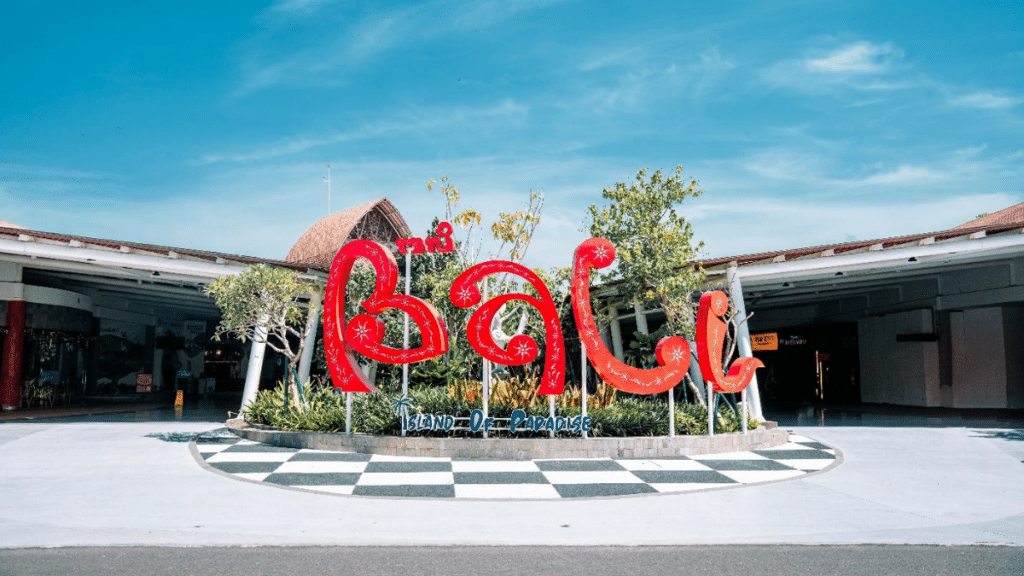The Threshold Moment
The cabin doors open at Ngurah Rai International Airport, and Bali greets you with a sensory overture—warm air heavy with frangipani and clove smoke, the metallic chime of a gamelan recording, the immediate cling of humidity against skin still chilled from recycled airplane air.
This is where most travel guides end and the real journey begins.
What follows—those first 60 minutes after touchdown—determines whether you’ll slip seamlessly into island rhythm or become another disoriented tourist arguing with a taxi driver as your phone battery dies. After observing thousands of arrivals and consulting with airport staff, hoteliers, and veteran travelers, here’s the definitive guide to mastering Bali’s arrival ballet.
The Arrival Playbook
1. Immigration: Your First Lesson in Island Time
Bali’s immigration queues move with the cadence of a kecak dance—sometimes flowing, sometimes inexplicably stalled. During peak hours (1-3 PM and late evenings), waits can stretch to two hours.
What the experts do:
- Process your e-VOA (electronic Visa on Arrival) at least 48 hours pre-flight through https://evisa.imigrasi.go.id/
- The leftmost counters often move 15% faster (a quirk of crowd psychology)
- Have these ready in a document wallet:
- Printed e-VOA confirmation
- Hotel reservation (address in Bali)
- Return flight ticket
New for 2024: Fast-track services now available for families with young children and travelers with disabilities—ask the red-vested airport ambassadors.
2. Baggage Claim: The Quiet Before the Storm
The carousel area feels like a decompression chamber—over-airconditioned and temporarily peaceful. Your bags will emerge eventually, though “Bali time” governs this space.
While you wait:
- Complete your customs declaration digitally using the QR code stations
- Check strap tags—Bali’s humidity makes ink on paper tags bleed within hours
- Note the location of ATMs and prayer rooms for post-customs needs
Pro tip: The first baggage carousel serves premium cabins—if you flew economy, don’t panic when you don’t see your bag immediately.
3. The Connectivity Crisis (Solved)
Stepping into arrivals without a working phone is like entering the ocean without swimming skills. The SIM card touts near exit doors push “tourist packages” with 300% markups and unnecessary call credits.
Smart solutions:
| Option | Pros | Cons | Best For |
| Pre-purchased eSIM | Instant activation | Requires compatible phone | Tech-savvy travelers |
| Telkomsel Grahabali store | Best coverage, local rates | Need passport registration | Long-term stays |
| Airport WiFi | Free for 30 minutes | Spotty signal | Quick messages |
Insider hack: Most tourists in Bali end up with overpriced or limited data plans—simply because they take whatever is offered at the airport. But here’s a better deal: Hey Bali offers a Telkomsel Sim Card or eSIM Start From 34GB of data (valid for 30 days) for just $9. That’s cheaper than most standard tourist packages, and you’ll be using Indonesia’s strongest 4G/5G network, with excellent coverage across the island—including more remote areas like Nusa Penida or northern Bali.
4. The Transport Gauntlet
The arrivals hall is a theater of hustlers and confused tourists. Blue-shirted taxi touts quote prices in US dollars (always a red flag), while Grab drivers play cat-and-mouse with airport security.
Your escape routes:
A. The Official Way
- Bluebird Taxis: The metered stand is left of exit doors. Say “argo, ya” (meter, please) as you enter.
- Hotel Transfers: Often include cold towels and bottled water—worth the $5 premium.
B. The Local Way
- Private Drivers: WhatsApp your flight details—they track landings better than airlines. Expect:
- Name sign at arrivals
- Cold mineral water
- Free WiFi hotspot
C. The Budget Way
- Kura-Kura Bus: IDR 80k to Seminyak/Kuta, but limited routes
Red flags:
- Drivers claiming your hotel is “closed” or “overbooked”
- Anyone offering “special discount” transport inside the terminal
5. The Luggage Solution

With most hotels enforcing 2 PM check-ins, that 9 AM arrival leaves you in limbo. The smartest solution?
Hey Bali Storage
- Located just 10 minutes from the airport on Jl. Jubu Anyar
- 24/7 access with military-grade security
- Bali’s best rate at only IDR 25k (~$1.5) per day
- Lightning-fast service—store or retrieve bags in under 3 minutes
Why it’s brilliant:
- Frees you to explore or relax unencumbered
- No need to backtrack to the airport later
- Staff can recommend nearby warungs and cafes
6. First Acts of Paradise
With logistics handled, your real Bali begins. Skip the tourist traps—here’s where seasoned travelers go:
For the Weary
- Jemari Bali : Professional massages starting from IDR 199k
- Bale Udang: Floating pavilions serving chili prawns
For the Eager
- Tukad Cepung Waterfall: Empty at dawn when light shafts pierce the canyon
- Pasar Sindhu: Where locals buy temple offerings and snake fruit
FAQ: Your Bali Arrival Questions Answered
Q: Can I use Uber in Bali?
A: Uber no longer operates here. Use:
- Grab (ride-hailing)
- Gojek (bikes & multi-service)
- Bluebird (metered taxis)
Q: Is airport WiFi reliable?
A: It’s decent for:
- WhatsApp messages
- Email checks
Not for: - Video calls
- Large downloads
Q: Should I exchange money at the airport?
A: Only small amounts (IDR 1-2 million) at the PT Central Kuta counter (avoid others). Better rates in town at:
- BMoney Exchange (Seminyak)
- Kuta Money Exchange (verified rates)
Q: What if my luggage is delayed?
A: Ngurah Rai’s baggage service handles ~30 delayed bags daily. They’ll:
- File a report
- Deliver to your hotel (usually within 24h)
- Compensate IDR 500k/day for essentials
Q: Are there prayer rooms at the airport?
A: Yes—both Muslim and interfaith rooms are:
- Air-conditioned
- Equipped with washing facilities
- Located near Gates 5-6
Q: Can I buy alcohol at the airport?
A: Yes, but:
- Duty-free limits: 1L spirits + 200 cigarettes
- Local prices: Often cheaper at Circle K stores
The Arrival Mindset
Bali rewards those who land prepared but stay flexible. Pack:
- A foldable tote for market stops
- Wet wipes for the humidity
- Infinite patience for when plans unravel
Because the magic isn’t in avoiding the chaos—it’s in learning to move through it like the Balinese do: with a smile and the certainty that eventually, everything works out.
